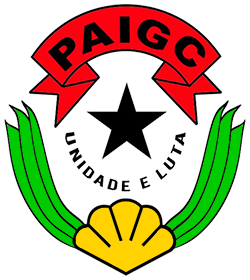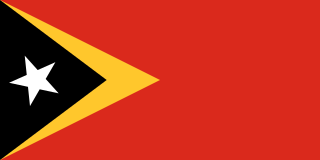The Reformist Party (Portuguese : Partido Reformista) was a Portuguese political party during the Portuguese First Republic, founded in the 1920s by the left-wing of the Democratic Party.
The Reformist Party (Portuguese : Partido Reformista) was a Portuguese political party during the Portuguese First Republic, founded in the 1920s by the left-wing of the Democratic Party.

Politics in Portugal operates as a unitary multi-party semi-presidential representative democratic republic, whereby the Prime Minister of Portugal is the head of government, and the President of Portugal is the non-executive head of state with several significant political powers they exercise often. Executive power is exercised by the Government, whose leader is the Prime Minister. Legislative power is primarily vested in the Assembly of the Republic, although the government is also able to legislate on certain matters. The Judiciary of Portugal is independent of the executive and the legislature. The President exerts a sort of "moderating power", not easily classified into any of the traditional three branches of government.

A one-party state, single-party state, one-party system, or single-party system is a type of sovereign state in which only one political party has the right to form the government, usually based on the existing constitution. All other parties are either outlawed or allowed to take only a limited and controlled participation in elections. Sometimes the term "de facto one-party state" is used to describe a dominant-party system that, unlike the one-party state, allows democratic multiparty elections, but the existing practices or balance of political power effectively prevent the opposition from winning power.

The People's Movement for the Liberation of Angola, for some years called the People's Movement for the Liberation of Angola – Labour Party, is a left-wing, social democratic political party from Angola. The MPLA fought against the Portuguese army in the Angolan War of Independence from 1961 to 1974, and defeated the National Union for the Total Independence of Angola (UNITA) and the National Liberation Front of Angola (FNLA) in the Angolan Civil War. The party has ruled Angola since the country's independence from Portugal in 1975, being the de facto government throughout the civil war and the ruling since its end.

The Portuguese Communist Party is a communist, Marxist–Leninist political party in Portugal based upon democratic centralism. The party also considers itself patriotic and internationalist, and it is characterized as being between the left-wing and far-left on the political spectrum.

The Socialist Party is a social-democratic political party in Portugal. It was founded on 19 April 1973 in the German city of Bad Münstereifel by militants from the Portuguese Socialist Action. The PS is a member of the Socialist International, Progressive Alliance and Party of European Socialists, and has nine members in the European Parliament within the Progressive Alliance of Socialists and Democrats group during the 9th European Parliament.

The Social Democratic Party is a liberal-conservative political party in Portugal. Commonly known by its colloquial initials PSD, on ballot papers its initials appear as its official form PPD/PSD, with the first three letters coming from the party's original name, the Democratic Peoples' Party. A party of the centre-right, the PSD is one of the two major parties in Portuguese politics, its rival being the Socialist Party (PS) on the centre-left.

The African Party for the Independence of Guinea and Cape Verde is a political party in Guinea-Bissau. Originally formed to peacefully campaign for independence from Portugal, the party turned to armed conflict in the 1960s and was one of the belligerents in the Guinea-Bissau War of Independence. Towards the end of the war, the party established a socialist one-party state, which remained intact until multi-party democracy was introduced in the early 1990s. Although the party won the first multi-party elections in 1994, it was removed from power in the 1999–2000 elections. However, it returned to office after winning parliamentary elections in 2004 and presidential elections in 2005, since which it has remained the largest party in the National People's Assembly.

The CDS – People's Party is a conservative and Christian democratic political party in Portugal. It is characterized as being between the centre-right and right-wing of the political spectrum. In voting ballots, the party's name appears only as the People's Party, with the abbreviation CDS–PP unchanged.

The Ecologist Party "The Greens" is a Portuguese eco-socialist political party. It is a member of the European Greens and a founding member of the European Federation of Green Parties.

António Luís Santos da CostaGCIH is a Portuguese lawyer and politician serving as the 119th and current prime minister of Portugal since 26 November 2015, presiding over the XXI (2015–2019), XXII (2019–2022) and XXIII Constitutional Governments (2022-present). Previously, he was the secretary of state for parliamentary affairs from 1995 to 1997, minister of parliamentary affairs from 1997 to 1999, minister of justice from 1999 to 2002, minister of internal administration from 2005 to 2007, and mayor of Lisbon from 2007 to 2015. He was elected as secretary general of the Socialist Party in September 2014.
Since the beginning of liberalism in Portugal in the 19th century, several parties have, by gaining representation in parliament, continued the liberal ideology in contemporary Portuguese politics. But after the initial fervor of the Liberal Revolution of 1820 and the outcome of the Liberal Wars (1828–1834) during the 19th century, liberalism was relegated to a secondary role in Portuguese politics and government and even outlawed for periods of time. The first fully-fledged liberal party founded as such to have a seat in the Portuguese Parliament since the end of the First Portuguese Republic (1910–1926), was the Liberal Initiative, in 2019.

The Assembly of the Republic, commonly referred to as simply Parliament, is the unicameral parliament of Portugal. According to the Constitution of Portugal, the parliament "is the representative assembly of all Portuguese citizens". The constitution names the assembly as one of the country's organs of supreme authority.

Elections in Portugal are free, fair, and regularly held, in accordance with election law.

Cape Verde or Cabo Verde, officially the Republic of Cabo Verde, is an archipelago and island country in the central Atlantic Ocean, consisting of ten volcanic islands with a combined land area of about 4,033 square kilometres (1,557 sq mi). These islands lie between 600 and 850 kilometres west of Cap-Vert, the westernmost point of continental Africa. The Cape Verde islands form part of the Macaronesia ecoregion, along with the Azores, the Canary Islands, Madeira, and the Savage Isles.

East Timor, also known as Timor-Leste, officially the Democratic Republic of Timor-Leste, is an island country in Southeast Asia. It comprises the eastern half of the island of Timor, the nearby islands of Atauro and Jaco, and Oecusse, an exclave on the northwestern side of the island surrounded by Indonesian West Timor. Australia is the country's southern neighbour, separated by the Timor Sea. The country's size is 15,007 square kilometres (5,794 sq mi). Dili is its capital.

People–Animals–Nature is an environmentalist and animal rights and welfare focused political party in Portugal, founded in 2009. In 2015, they won one seat in the Assembly of the Republic. In 2019, they also won one seat in the European Parliament, and increased their seat share to 4 in the Assembly.

João Manuel Gonçalves Lourenço, GColIH is an Angolan politician who has served as the president of Angola since 26 September 2017. Previously, he was Minister of Defence from 2014 to 2017. In September 2018, he became the Chairman of the People's Movement for the Liberation of Angola (MPLA), the ruling party. He was the party's Secretary-General from 1998 to 2003.

The 2019 European Parliament election in Portugal elected the Portuguese delegation to the European Parliament from 2019 to 2024. This was the eighth European Parliament election held in Portugal. The election was held on Sunday, 26 May 2019.

Early legislative elections were held on 30 January 2022 in Portugal to elect members of the Assembly of the Republic to the 15th Legislature of the Third Portuguese Republic. All 230 seats to the Assembly of the Republic were up for election.